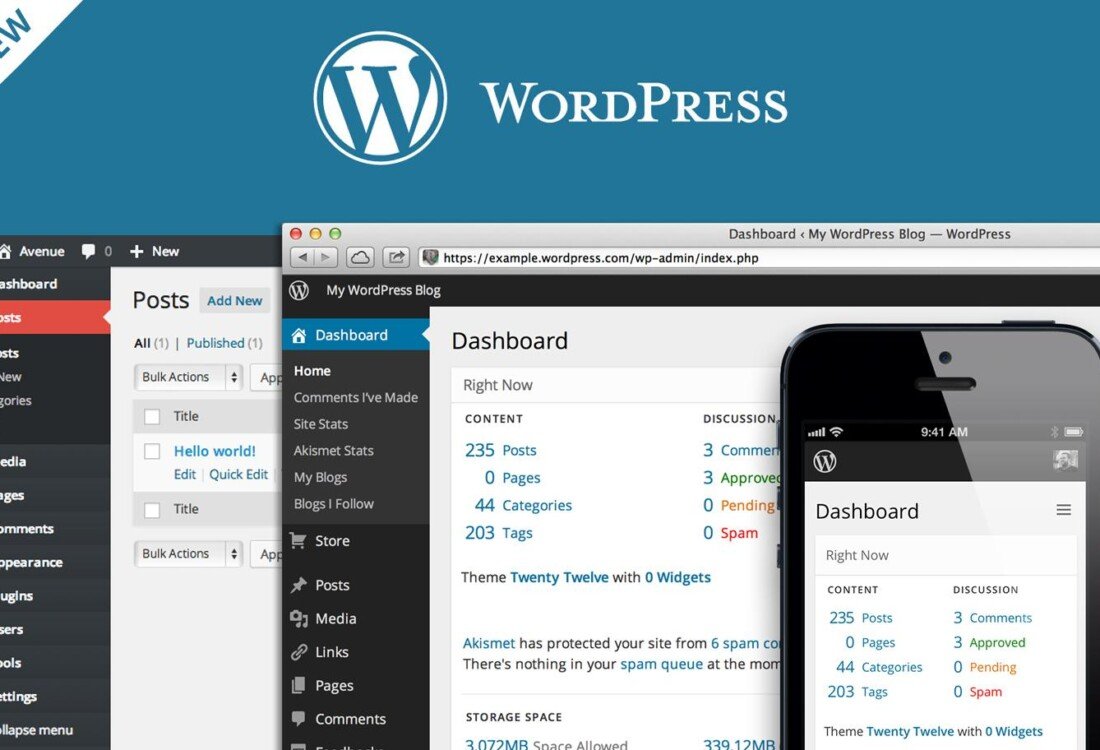
9 essential things to do before starting a blog
Do you want to start a blog? STOP! Here are 9 essential things you should do BEFORE you begin, to ensure your blog gets off to the best possible start.
Do you want to start a blog?
Do you want to be able to work for yourself, call the shots and decide when and how you work?
Do you want to be able to have a well paid job AND be able to take the kids to school every day or actually find time for your hobbies?
Do you want an incredible career that will take you to places you would never have imagined?
Blogging can do all that and more!
But before you begin… here are 9 essential things to do BEFORE starting your blog to ensure your blog gets off to the best possible start.
1. DECIDE WHAT YOU WANT TO BLOG ABOUT
Choose wisely. If this comes off, you might be writing about this subject for the next 10 or 20 years! The good news is there are tons of amazing things to blog about. The bad news is… there are tons of amazing things to blog about! It’s sometimes hard to narrow it down, but as a guide, aim to hit these three:
Something you are passionate about
What do you love to read about, talk about and do in you free time – is it cooking, travel, golf, running, chess, fashion, beauty? What could you see yourself writing about for the next 10 years or more?
Something you know about
What expertise do you have? What do your friends say you are really good at? What does everyone always ask for your opinion about? Are you amazing at putting together a great outfit? Getting your kids to eat vegetables or go to sleep at night? Cooking on a tight budget? Being organised? Or perhaps you have a special skill or qualification? Are you a finance expert? A nutritionist? A trained lawyer?
Something other people really want to know about
The most successful blogs solve problems. The bigger the problem, the more likely your blog is to be successful and the easier you will find it to make money with your blog. Big problems that need solving include: how to be healthy/lose weight/go vegan or gluten free, how to save money/living on a tight budget, how to get rich, how to look good, how to be organised and productive at work/at home, how to get kids to sleep/eat/behave. If you can teach people to do one of those things or something similar, you are on to a winner!
If you have a clear idea about WHAT you want to blog about BEFORE you start blogging you will find it much easier to create content, grow your blog and you will start making money faster.
2. RESEARCH BLOGS IN THAT NICHE
Once you know roughly what you want to blog about, you need to start researching what other blogs in that niche are saying about that subject. This is particularly important if you don’t currently read that many blogs. You need to get an idea of the style of blogging in that niche. What are people saying? How are they writing? What else to they include on their blog posts in terms of graphics/images/quotes/bullet points/headings etc.
Writing a blog is very different to writing, say, a newspaper article or a book. So, you need to get familiar fast with how a blog in your niche is written.
You also want to get an idea of what is already being covered in that niche. And what you could bring to the table. Do you have a unique or different angle on your niche? For example, perhaps you want to start a food blog. Writing a generic blog about ‘stuff I like to eat’ is unlikely to get you many followers.
What can you do to be different or unique (without being too random – maybe nobody is doing a blog all about cooking goat meat yet, but that is probably for a good reason!)? Perhaps you could write about how to be healthy on a budget, or how to achieve authentic tasting international food using ingredients you can buy in your local stores, or perhaps you want to write about how to survive on a gluten free diet as a student.
By being a little bit different, a little bit unique, you are much more likely to succeed than if you just do exactly what everyone else is doing… everyone else who has already been blogging for years… and has got a big head start on you. By doing some research first you will hopefully find what you feel is missing, what you feel you can add…and then you can fill that gap with your blog!
How do you find blogs in your niche? Just type something like ‘travel blogs’ or ‘food blogs’ into Google and it will come up with some results… once you have read a few they will lead you to more. You could also try top 10 lifestyle blogs in USA / top 10 fashion blogs in Australia / top 10 running blogs in UK (or whatever niche you want / country you are from).
So, what should you be looking for on these blogs? Grab a notebook (or open a new document on your computer) and jot down notes on the following:
- Things you like (anything – the layout, the tone, the photography, the graphics, the topics)
- Things you don’t like (as above – what irritates you, what do you think could have been done better, how would you do it differently?)
- Good blog post ideas. There’s no copyright in blog ideas! Jot down every post that makes you think ‘oooh yes, that’s a good one’ – obviously when you come to write it you will use your own ideas and your own words and may well give it a different title too, but by reading established blogs you will begin to get a good stockpile of content ideas which you will find invaluable when you come to start writing posts on your blog.
- Anything else! Literally anything else that strikes you as you read – a good idea for a blog name, an element you’d like to include in your blog, a question you need to find the answer for…write it down!
How many blogs should you research? It depends a bit on how familiar you are with blogs in the niche you have chosen. When I did this exact task before I started Productive Blogging I researched 6 blogs – I already read a lot of blogs in the niche and after detailed research on 6 great blogs I already knew about, I had done enough. If you are new to this niche, then maybe 10 (or even 20 if you have the time!). But do at least 5 or 6!
A word of caution. Don’t get discouraged. It’s really easy to start feeling down when you look at really good blogs in the niche you are aiming for. DON’T! Remember these bloggers have been going for years and probably the first incarnation of their blog was terrible. Don’t get down and start thinking ‘I could never achieve this’. There is nothing stopping you writing an incredible blog that will be super successful, but it will take time and it will look different to other bloggers, because it’s not THEIR blog it’s YOUR blog and you are unique, with something unique to tell the world – and don’t you forget it!
Researching blogs not only gives you valuable insight and ideas, but it will also help you decide if this is the right niche for you. If you are already bored after reading the second blog, you maybe need to pick another niche! If on the other hand you still find yourself totally absorbed in the blogs you are reading and staying up till way after your bedtime to complete this task, you are onto a winner!
3. THINK ABOUT HOW YOU WILL STRUCTURE YOUR BLOG
This might sound mad, but it will save you a whole load of headaches later on. So many bloggers begin just by writing any old thing and as a result their posts are a right jumble of all sorts of different topics. But readers (and search engines) like order and structure. You don’t really need a full-blown content strategy yet (although it wouldn’t hurt!), but do start to think about how you will break down your main topic into categories.
So, for example, perhaps you’ve decided to start a lifestyle blog. You might break it down into 4 topics: kids, travel, food and fashion.
Or say you are starting a running blog. Your categories might be: how to start running, running gear, race reports, training plans, nutrition and tips to become a better runner.
My blog has 6 clear categories: start a blog, blog content, grow your blog, monetise your blog, email marketing and productivity tips.
Having categories makes your blog easier to navigate, makes it more focused and really helps with SEO (search engine optimization) too.
As you begin writing your blog you should aim to write a roughly equal number of posts for each category. This will make you blog seem well balanced to your readers and earn you SEO brownie points too.
4. BRAINSTORM BLOG POST IDEAS
This is really important. Why? Because it will tell you 2 things: Do you have enough ideas for a blog on this subject? And will you enjoy writing about this subject? If you find after half an hour of brainstorming content ideas you only have 3 ideas, then maybe you need to pick another subject. If on the other hand you find yourself desperately scribbling down ideas until your hand aches, you’ve probably chosen the right topic!
So how do you go about it? Get a large piece of paper and write the names of your categories at the top. Under each category write your blog post ideas. Don’t stress about perfect titles yet. That will come later when you sit down to write the post. For now, just jot down ideas. Aim to have around 10 ideas under each heading. Though by all means write more if you’ve got them.
If you choose 5 categories and come up with 10 ideas for each – that’s enough blog post ideas for a whole year!
5. THINK ABOUT HOW YOUR BLOG WILL MAKE MONEY
It’s no good having a great idea for a blog only to discover a few months down the line, after you have invested time and money into your blog, that there is no money to be made from it. (Unless of course you don’t want to make money from your blog, in which case skip this section and go on to point 6).
Broadly speaking there are 5 ways to make money from a blog:
- Adverts – classic adverts just like you get in magazines and newspapers. The advantage of these is they are quick to set up and can be put on a brand new blog. The disadvantage is you have to have a very high number of page views to make any real money out of ads. They can also be distracting for your readers and are not a good idea if you plan to sell products or services on your blog (you may well end up advertising your competitors!).
- Affiliate links – these are small text links you place into your post from companies such as Amazon or ShareaSale who have affiliate schemes. They are specific links generated especially for you that are tracked by the company in question. If one of your readers clicks on a link and goes on to buy a product from that company, you will get a small commission. These can work very well on any blog where you often make recommendations for products – especially high-ticket items – for example a blog about photography or fancy baking that needs a lot of expensive equipment. These can also usually be implemented on a new or newish blog and page views are much less important here – it’s more about how much your audience trusts you.
- Sponsored posts – this is when a brand, or a PR company representing a brand, contact you and ask you to feature their product on your blog for a fee. (Or you can contact them with a pitch.) It could be as a review, or as part of a recipe or DIY project, or they might offer you some free product to give away on your blog. The downside to this is that usually PRs and brands want to work with more established bloggers with good traffic and good engagement on their social channels, but if you have a particularly tight niche or can offer a unique perspective or expertise you may be able to make money from sponsored posts more quickly.
- Products – this is when you create a product and sell it via your blog. This could be an ebook, a course or even a physical product. The potential for success is enormous – especially with something like an ebook or a course. But it does require you to create something of quality, which takes time, and you do need to bring something different and/or better to the market. Just recreating something that’s already out there won’t cut it! You also need to gain the trust of your audience, which takes time too.
- Services – similar to products, but instead of creating a product like an ebook or a course, you are selling a service related to your blog. It could be that you are a nutritionist and your blog is full of healthy recipes and nutrition tips. Your blog acts as one giant advert to attract the type of person who would be interested in booking a personal consultation with you. This works brilliantly if you already have an expertise, for example if you are a personal trainer, a photographer or an accountant. If you don’t have a specific expertise you may have to build up your blog for a while before people will trust you enough to part with their hard-earned cash. But it could be that once you are established you can sell your services as a virtual assistant or as a social media manager or even as a website designer.
6. DECIDE IF YOUR BLOG WILL BE HOSTED OR SELF-HOSTED
Blogging is full of annoyingly over complicated terminology, and hosted vs self-hosted is one of them.
Simply speaking, a hosted blog is like RENTING A HOUSE on a long lease from a very relaxed landlord. Broadly, you can do what you like, though there are some restrictions. But at the end of the day the landlord does own your blog and could take it down if they wanted to. Hosted options include Squarespace, Wix, Blogger and WordPress.com
In general, hosted blogs are cheaper to start with (though there are often hidden costs further down the line) and are slightly less technical (though there is not such a distinction as there used to be and heck if I can start not one but two self-hosted blogs, anyone can do it – I am no technical whizkid!) Hosted blogs are often also seen as slightly less professional.
A self-hosted blog on the other hand is like OWNING A HOUSE. You can do almost anything you want – so long as you have the technical capability. And, crucially, you own it. No one else can take your blog away from you.
Self-hosted blogs are slightly more expensive to start with, but not much, and they are still an incredibly cheap way to start a business – generally less than $5 a month. They are slightly more technical. But only slightly. And there is plenty of help. They are also seen as much more professional, and in the long term, they are easier to earn money from. There are a variety of hosted options but the one most people use is WordPress.org.
Ultimately whether you go hosted or self-hosted is up to you, but if you want the best long-term option, I would strongly encourage you to go self-hosted. Technically it is possible to change at a later date, but it’s tricky.
If you want any further encouragement then consider this… I know lots of bloggers who are hosted and lots of bloggers who are self-hosted. A large proportion of the hosted bloggers I know are considering going self-hosted or wish they had gone self-hosted from the start. I know of no self-hosted blogger who wants to go the other way. Not a single one. And that should tell you something!
7. DECIDE ON HOSTING
Just when you thought you’d got your head around this blogging terminology it gets more complicated (honestly, I hate all the jargon – so unnecessarily complicated!) If you decide to go down the self-hosted route you need to buy hosting for your blog. Crazy huh?
This time. Let’s use a car analogy. Your blog address (URL – the www.yourblogname.com thing) is like your car. You own it. It’s yours. But you need a garage to put it in. That’s your hosting. Hosts are names like Bluehost, Siteground or GoDaddy. They will store your little blog and also give you extras such as an email address for your blog and possibly security features, backups or some space to do some testing.
You also need WordPress which is like the engine for your car – the thing that makes it go.
It sounds a bit complicated, but honestly it isn’t – you just buy your domain name, buy your hosting package, install WordPress and you are good to go. That part takes literally 30 minutes and I show you exactly how to set up your WordPress blog here.
You are welcome to do some serious research into blog hosting, but honestly the options out there are bewildering! It’s best to go with a recommendation.
(Please note I am an affiliate for SiteGround – if you buy hosting from SiteGround through any of my links I will get a small commission, but you won’t be charged a penny more. Thanks in advance for your support, it enables me to create lots of free resources – like this one!)
8. DECIDE ON A DOMAIN NAME (URL)
You can either do this when you set up your blog or you can register your domain name separately.
However, you may find you want to register your domain name before you are ready to actually start your blog. That’s what happened to me with this blog. I discovered by chance that productiveblogging.com was available as a blog name and it just seemed too perfect. I had to snap it up before someone else got their hands on it. Buuut I wasn’t ready to start my blog and I didn’t want to pay out for several unused months of hosting. So I registered my domain name separately. It cost $15. I figured, even if I never used it, 15 dollars was worth it to snap up that domain name. I registered productiveblogging.com with Hover in about 5 minutes. Brilliant!
So how should you choose a domain name? There are broadly 4 choices:
- Your own name – e.g. ebgargano.com. This is great if you have a distinctive name that is easy to say and spell! Not so good if you are called John Smith or your surname is Papadapadopilus. This option is particularly good if you are offering professional services or you are well known in your field (or hope to be soon!).
- A ‘does what it says on the tin’ type name. Like my food blog easypeasyfoodie.com or this blog productiveblogging.com. This is good for instant recognition and understanding of what your blog is all about and can also be super useful for SEO (put easy peasy before the name of a recipe I’ve made, and I usually come up on page one of search engine results).
- A combination of the first 2 – something like EbCooks.com or SallysBloggingTips.com – if done well it can work well, making it clear what your blog is about AND personalising it, but it can sometimes come across as a but amateurish.
- Something related but not quite so ‘does what it says on the tin’. For example, sandandsnow.com for a travel blog or randomdribblings for a mummy blog. These are particularly popular for food blogs…think lavenderandlovage, rocketandsquash…
A few things to consider: Make sure your blog name is easy to say and spell. Write it down and check there are no hidden rude words (for example, don’t call your blog missexpert.com – unless you are starting a certain kind of ‘adult’ blog, that is!!). Check that blog name doesn’t already exist (run it through the checker on siteground.com*) and isn’t a premium domain name (some particularly good blog names sell for a premium – one of my early ideas for this blog was PurposefulBlogging.com, but it was going to cost me upwards of $200 – ouch!). Also ask some trusted friends what they think – get their honest opinion.
I would really recommend you go for the .com ending. In general, endings like .biz or .tv just look weird and spammy. If you have your heart set on a name and it isn’t available as .com, you could at a push try .net or .co, but personally, I’d keep trying ideas until I found a .com I liked.
Also, make sure no one has virtually the same name and/or it’s not the name of an existing business. Easy to check. Just run the name (not the domain – i.e. Productive Blogging not productiveblogging.com) through Google. If you don’t get a business with that name coming up, you are good to go. Bear in mind too, that you can’t use trademarked names within your blog name/URL. So, for example, you can’t call your blog facebookexpert.com or amazongirl.com.
9. CHECK THE SOCIAL MEDIA NAMES ARE AVAILABLE
Before you hit ‘buy’ on that perfect name do check you can get good social media names for that blog name. It’s a very quick check in the search boxes of Twitter, Facebook Pages, Instagram, Pinterest and YouTube, but well worth doing. Then grab them for yourself while they are still available – you don’t have to do anything with them for the time being and you can set FB and Instagram to private until you are ready, but you will be so pleased you got them before anyone else did.
All set? Then you are ready to start your blog!








